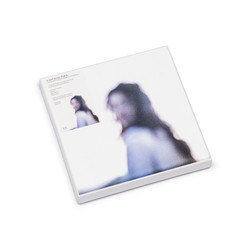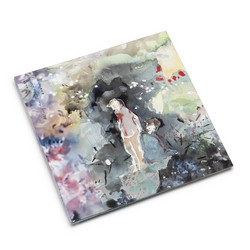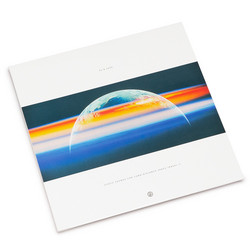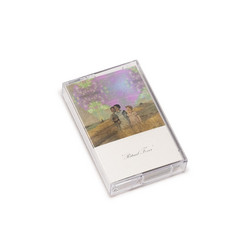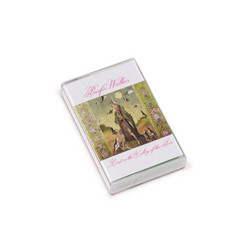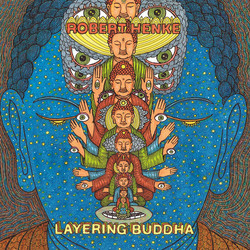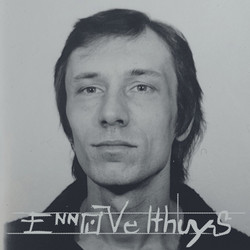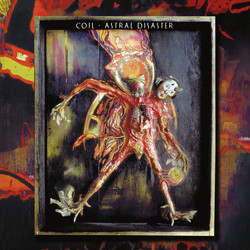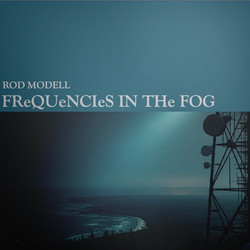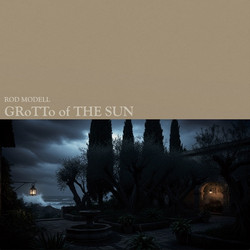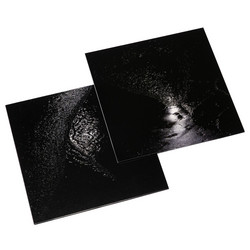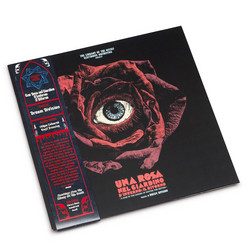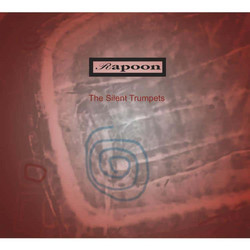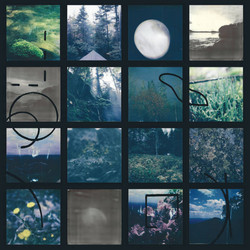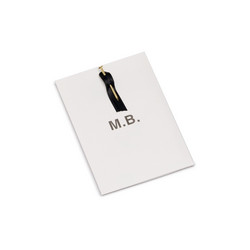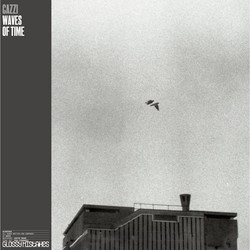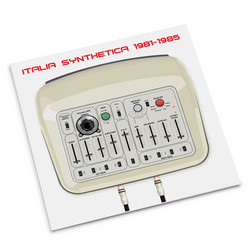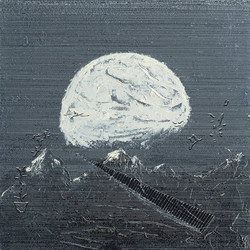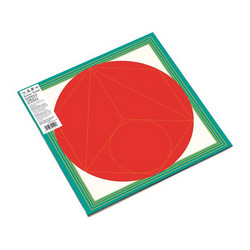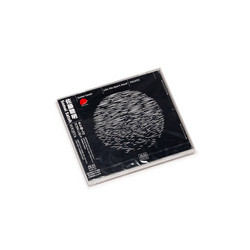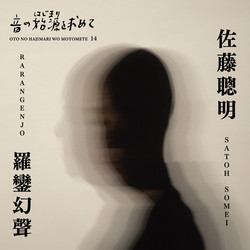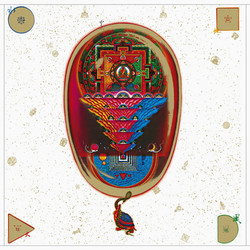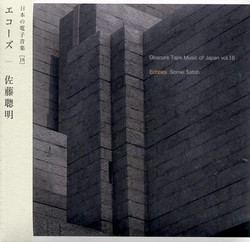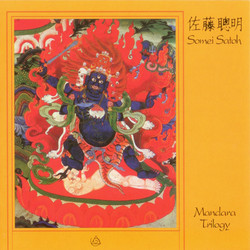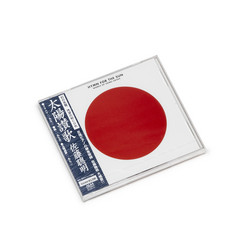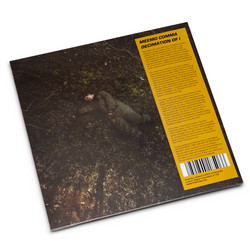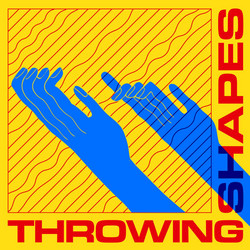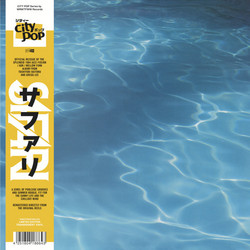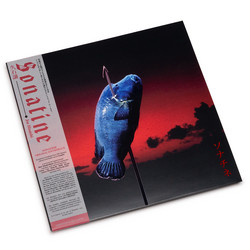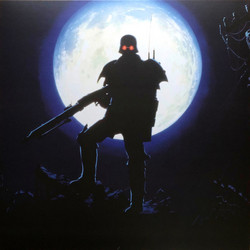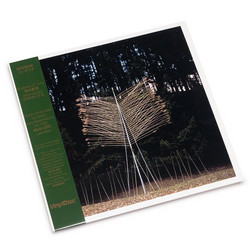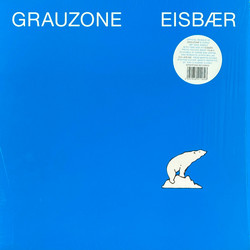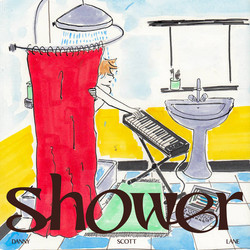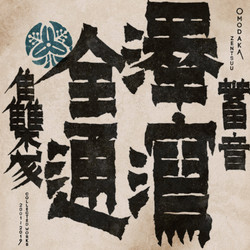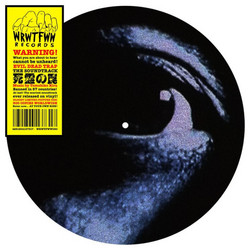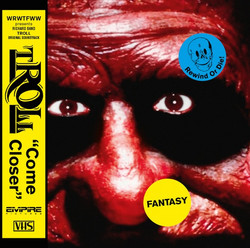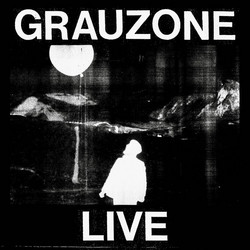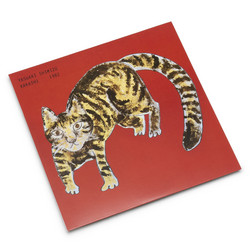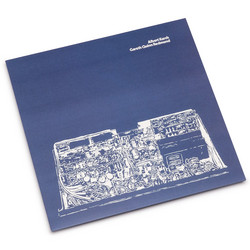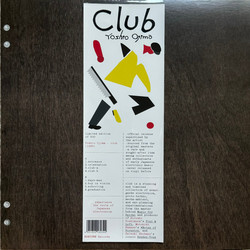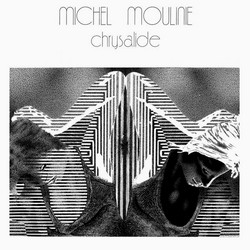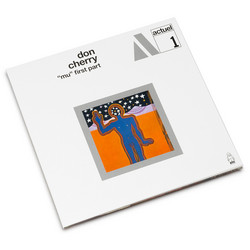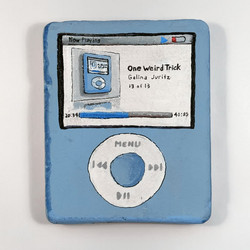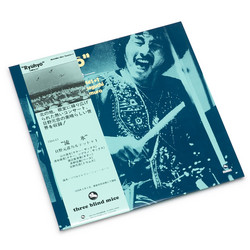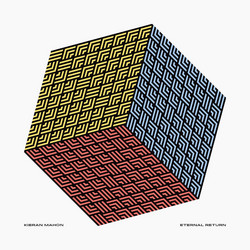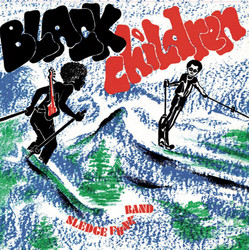Somei Satoh
Emerald Tablet / Echoes (LP) + Mandala Trilogy +1 (2LP)
Over the last few years, the Swiss imprint, Wrwtfww, has embarked upon an astounding immersion into some of the most important musical gestures ever produced in Japan. So far, they’ve brought us vinyl and CD reissues of seminal albums by Midori Takada, Yasuaki Shimizu, Mkwaju Ensemble, Yutaka Hirose, Satoshi Ashikawa, Yoshio Ojima, Motohiko Hamase, and numerous others, and the pace doesn’t seem to be slowing. Two of their most recent, the composer Somei Satoh’s Emerald Tablet / Echoes and Mandala Trilogy +1, are easily among the most mind-blowing yet. Bristling hybrids that seamlessly intertwine sound art, minimalism, ambient and experimental music, and the ancient sounds of Japan’s traditional music, there’s nothing quite like them anywhere in history of recorded music, placing them high among the towering releases of the last year. As a celebration of their singular genius, in addition to being available individually, we’re offering them in a special, discounted bundle because we don’t think anyone should be without them.
Born in 1947, like a number of Japan’s most innovative artists who emerged during the 1960s and 70s - Yoshi Wada, Takehisa Kosugi, Akio Suzuki, Mieko Shiomi, etc. - Somei Satoh’s work exists at a fascinating juncture between the worlds of visual / sound art, experimental music, and a channeling of traditional forms. Following his studies at Nihon University of Art, Satoh joined Tone Field, a performance and an experimental inter-arts ensemble that began performing his earliest compositions, many of which were for solo piano or for piano with electronics, and explored gradations of sound by employing tremolos of single tones or tonal clusters that mirrored, albeit in an entirely unique way, the work being developed by the American minimalists during roughly the same period. Largely self-taught, over a short number of years, Satoh began to develop a more dynamic range in his work, channeling both Shintoism and Zen Buddhism and regarding the act of musical creation as a spiritual exercise, and building upon his early innovations by incorporating a far more diverse sonic pallet and structural complexity, encountered across both of Wrwtfww’s two LPs exploring the composer’s singular world.
Emerald Tablet / Echoes comprises two major works from Somei Satoh's discography, each representing a total immersion in meditative harmonics and the composer's unique sense of sonic mysticism. The first, Emerald Tablet, was originally released by ALM in 1981. Recorded at the NHK Studio of Electronic Music in 1978, the work illuminates Satoh's unique take on musique concrète and tape music, harnessing the harmonic tones of tubular bells, cymbals, and 'kin' (Buddhist standing bell), which were then overdubbed to produce entirely unexpected results. As the work evolves, intersecting tones feed off of one another, transforming themselves into a droning, buzzing universe that far more closely resembles the sound pallet of modular synthesis, than anything in the organic world.
The album’s second work, Echoes, was recorded in May 1981. Remaining unreleased until 2013 when it was issued as a CD by Edition Omega Point, it stands among Satoh’s most ambitious efforts, unveiling the depths and scope of his practice. It was recorded at the "Mist, Sound, and Light Festival," a 10-day event during which the composer placed 8 large scale loudspeakers - connected by length of cables - on hills surrounding a stream within the valley where the festival was staged, generating sound through an 8 channel-tape system, while man-made fog, sculpted it into various formations by laser beams, rose from below. When encountered through its audio component, it stands as a towering effort of Japanese musical minimalism, with deep shifting harmonics intertwining in lush drones that present an astounding sense of humanity and naturalism, falling somewhere between La Monte Young, the sounds of Aeolian harp, ambient music, and industrial hum.
Once heard, Emerald Tablet / Echoes can’t help but elevate Somei Satoh to a central place in the history of minimal music and 20th Century composition. Wrwtfww’s edition is the first to offer these deeply sympathetic works paired with one another, and the first instance that Echoes, which was only issued on CD for the first time in 2013, has ever appeared on vinyl. An absolute triumph and as essential as records come. This one can’t be missed.
Where Somei Satoh’s Emerald Tablet / Echoes melts brains, his Mandala Trilogy - presented here for the first time on vinyl in its complete form as a double LP and accompanied by the never before issued composition Mai - takes everything to an higher plane. Among the works to most explicitly draw on the composer’s relationship with Buddhism - regarding the act of musical creation as spiritual exercise - it comprises three individual works, Mandala, Mantra and Tantra, recorded separately in 1982, 1986 and 1990, that collectively culminate as a masterpiece of vocal drone, taking the tradition of tantric singing into the future and an explicitly experimental realm.
Each of the Mandala Trilogy’s works, when placed together can be regarded as movements within a larger, seamless piece, presenting different temperaments within the same body of expression, while all three attempt to convey stillness and timelessness within a slowly evolving body of sound generated by the human voice, in this case Satoh’s own, in conjunction with electronics that remain an almost silent and mysterious presence over the trilogy’s duration.
Across each of the works - Mandala, Mantra and Tantra - chanting vocalisations, taking form as long form drones, fall within their own generative fields of ambience and reverberance, doubling upon themselves and traveling toward an infinite sustain, that pushes a territory of similar explorations by Yoshi Wada - Lament for the Rise and Fall of the Elephantine Crocodile, Singing in Unison, etc. - toward a sense of profound displacement, transcendence, and mystic through consumingly sublime and meditative harmonics.
If the all-consuming sonic universe woven by Mandala Trilogy wasn’t enough, Wrwtfww’s first ever complete vinyl edition carries the added bonus of Satoh’s Mai, a composition commissioned by harpist Ayako Shinozaki, and recorded at the Kioi Hall in Tokyo on November 11th 2004 under the baton of Tetsuji Honna and performed by the Kioi Sinfonietta Tokyo. Diving into an entirely different side of the composer’s practice, it’s constrained sense of minimalism and airiness is stunningly beautiful and emotive, acting as a fitting and well ballooned release following immersive intensity of the album’s previous three sides.
An absolute marvel that holds the potential to shake history to its core - issued here for the first time ever in its complete form on vinyl in a stunning double LP, is easily one of the most important releases of the last year. Truly stunning and not to be missed on any count, we couldn’t possibly recommend it enough.
